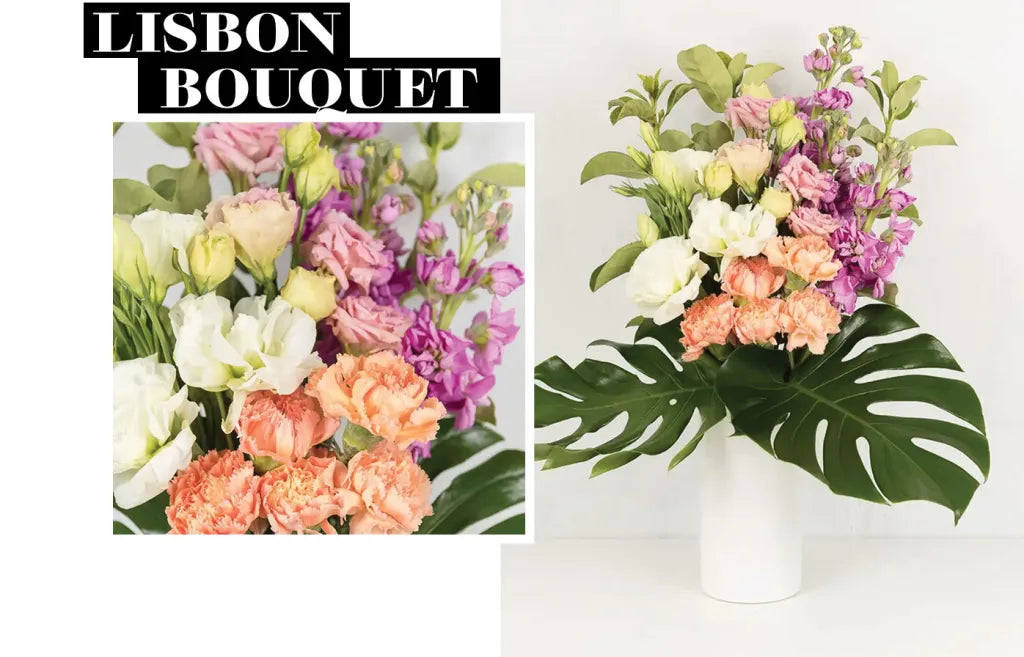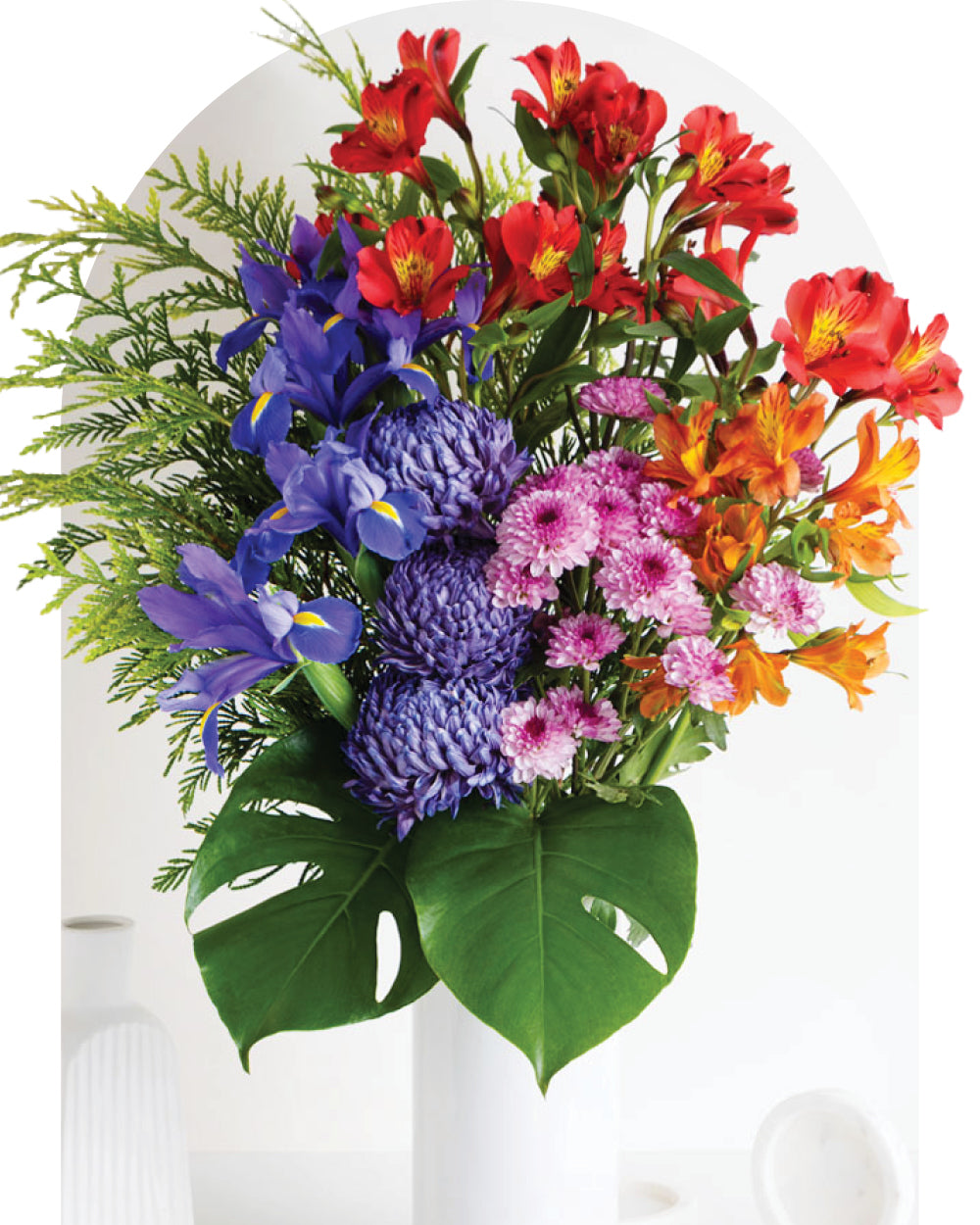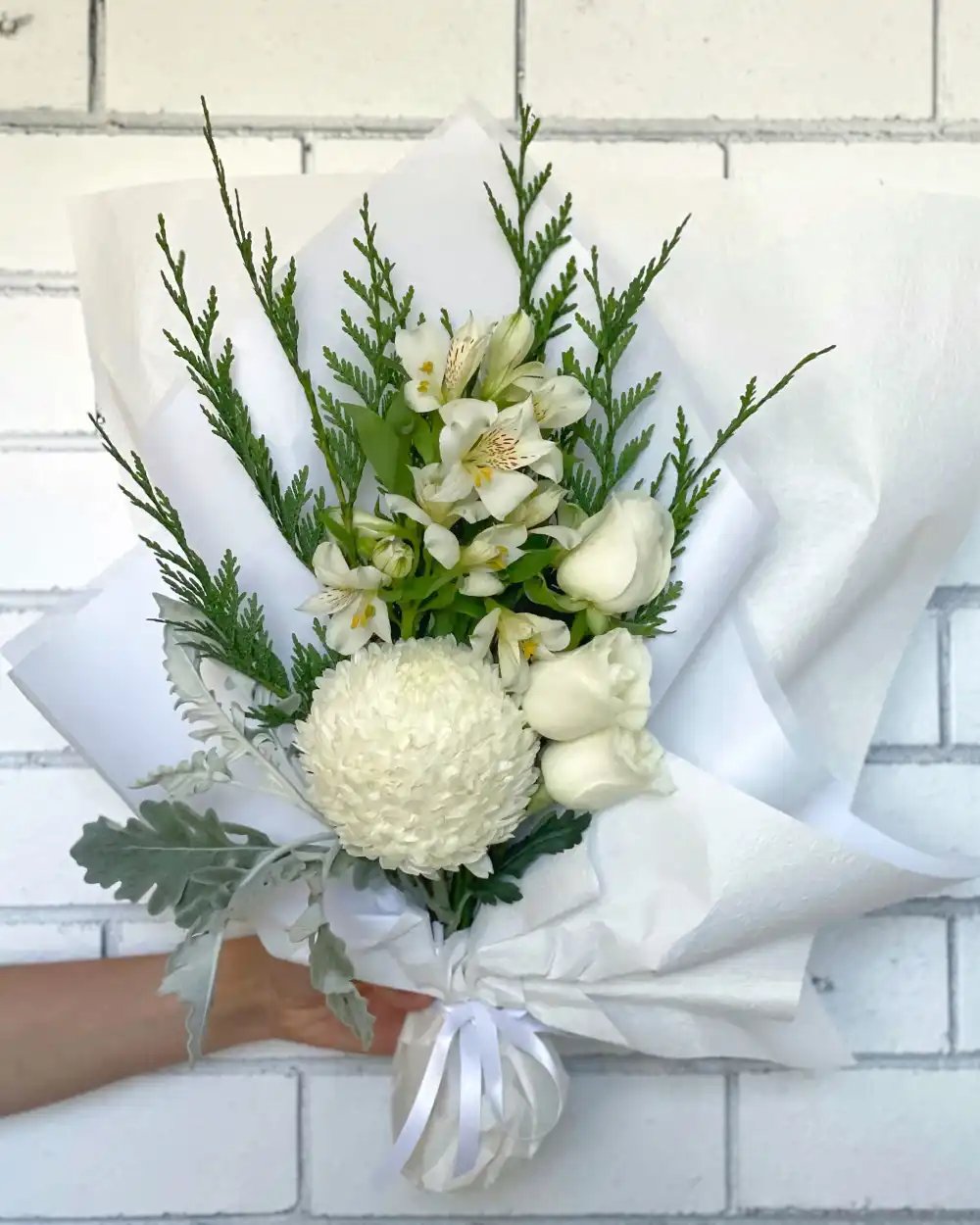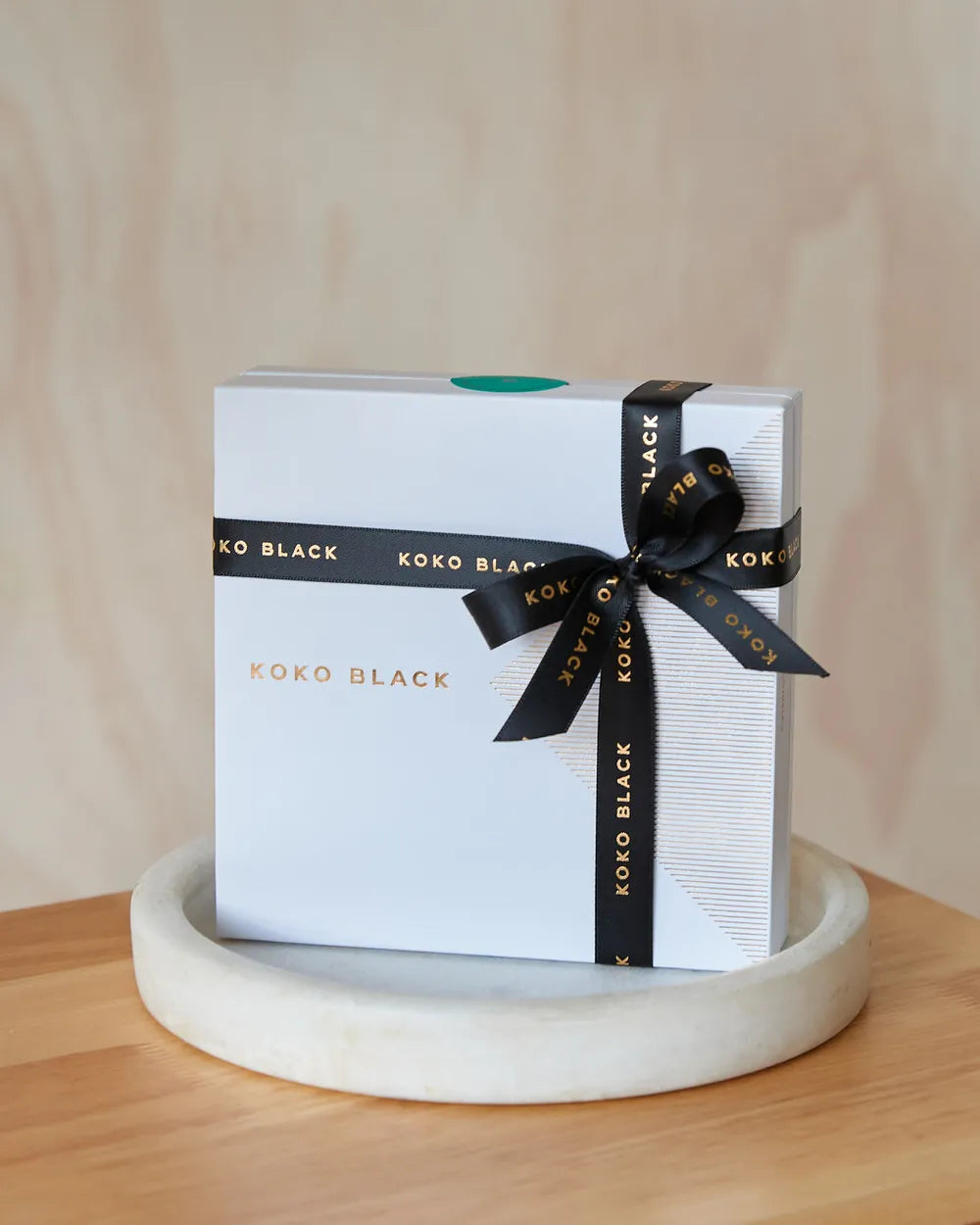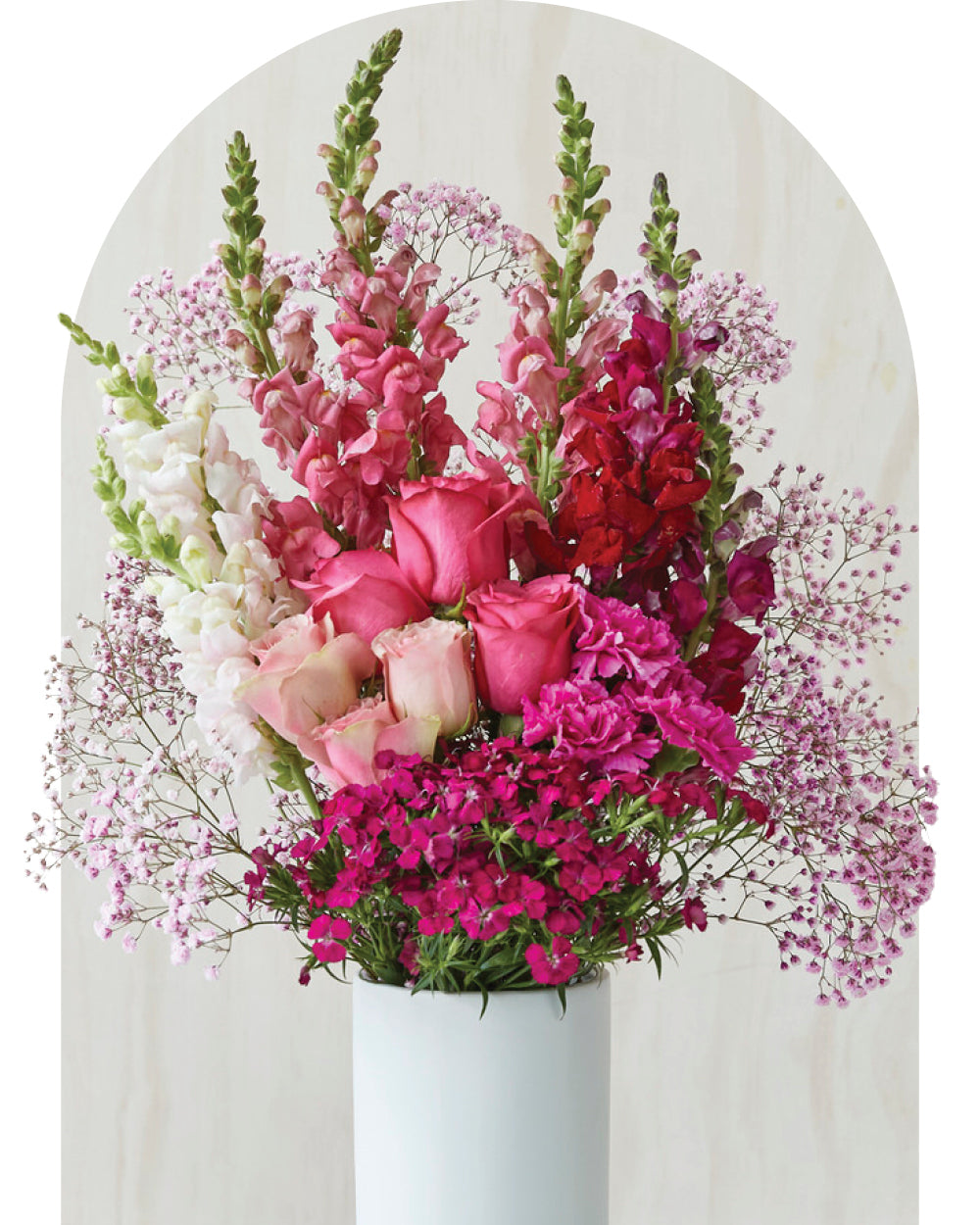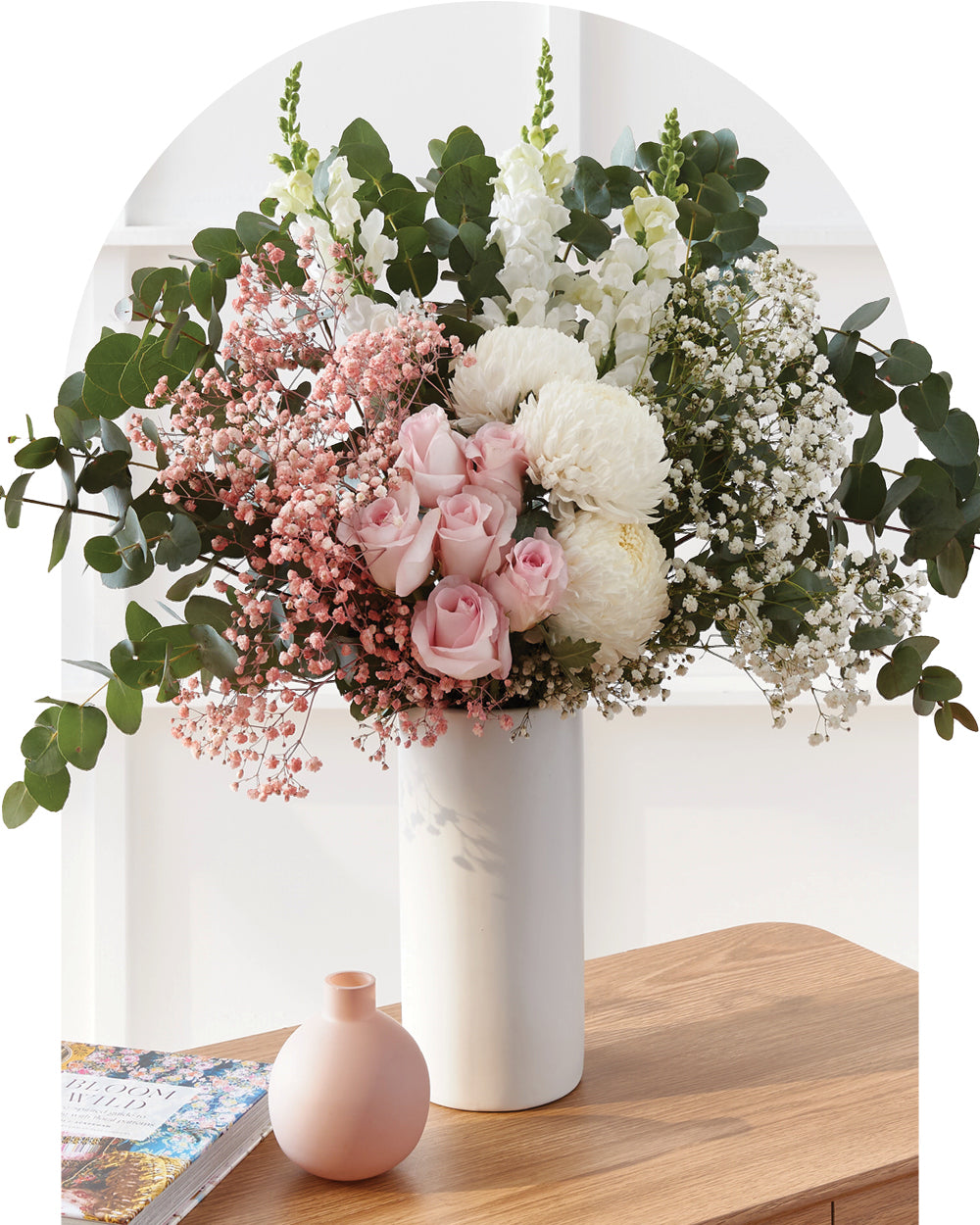The Lisianthus is a flower known by many names but whatever you choose to call them, their beauty is undeniable. They’re often compared to similar looking flowers, offering an affordable alternative to many of your more expensive floral faves.
But we think Lisianthus deserves to spend some time in the spotlight, so it’s time to highlight some of their amazing qualities. Just you wait and see they may even become your first choice. So if we’ve hyped them up enough to pique your interest, it’s probably time to learn a little more about the lovely Lisianthus.
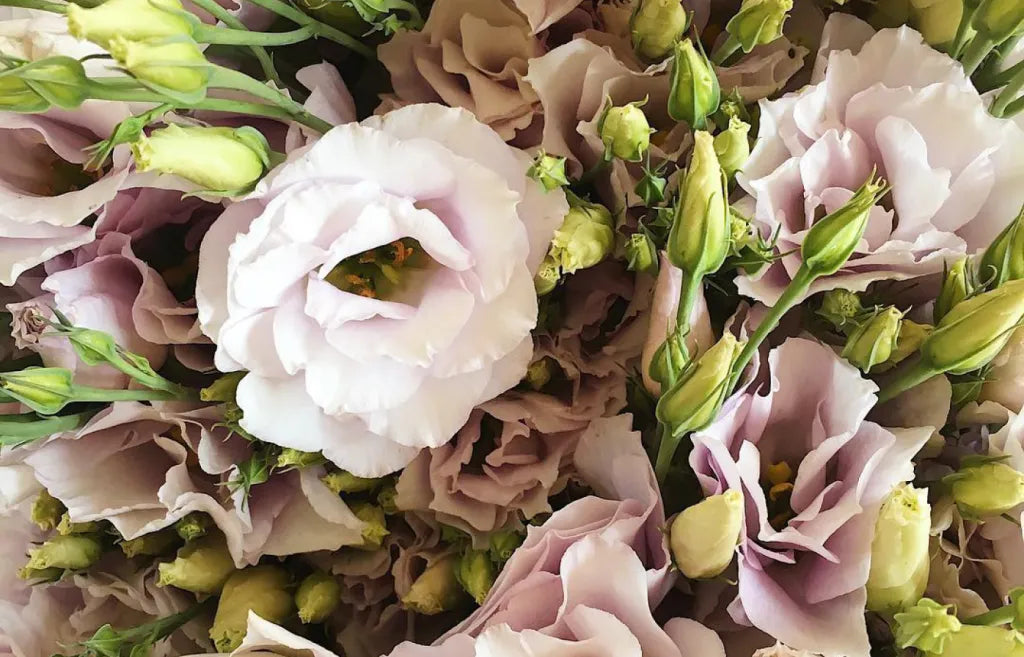
Fun Facts About Lisianthus
- These gorgeous blooms were originally given the Latin name Lisianthus, then renamed Eustoma, but finally Lisianthus was the name that stuck for this flower’s common name.
- Eustoma comes from the Greek Ɛu, meaning pleasing or good, and στÓμа meaning mouth. The name ‘pleasing mouth’ likely came from their large flower size, which can grow as big as three to four inches wide
- Lisianthus also comes from Greek, AIOσOÇ or smooth, and aveos which means flower.
- Lisianthus are a native wildflower in the warm regions of the southern United States, the Caribbean, Mexico, and the northern parts of South America.5. We have Japan to thank for their popularity in bouquets. They were first introduced there in the 1930s, leading to the wildflower being cultivated for the cut flower industry.
- We have Japan to thank for their popularity in bouquets. They were first introduced there in the 1930s, leading to the wildflower being cultivated for the cut flower industry.
- They are normally found in grasslands, leading to a nickname, the Prairie Gentian.
- They thrive best when planted in the freshly turned soil, which would have been naturally churned up by the cattle, horses and bison that live on prairies.
- Lisianthus are also known as Texas Bluebells, Seaside Gentian and Lira de San Pedro.
- Single-petalled Lisianthus are similar in appearance to Tulips and Poppies, while the double-petalled varieties resemble Roses and Peonies. This has led to another nickname, the poor man’s Rose.
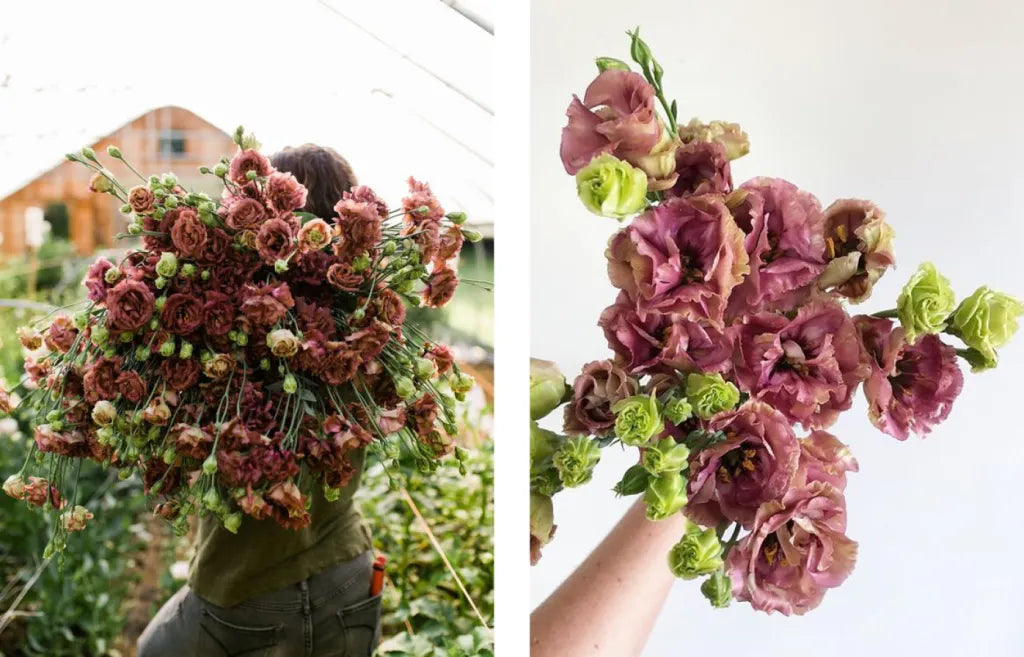
- Despite coming in various shapes and sizes, Eustoma is a small genus, with only two or three species to their name.
- Lisianthus are very distinctive looking, they have succulent-esque leaves with a blue-green colour.
- They can also grow anywhere from 15-60 cm tall!
- They are naturally found in shades of pink, purple, white, and blue. But you can also find bicoloured varieties – and sometimes you can even find red or yellow flowers!
- Lisianthus symbolised both an outgoing personality and appreciation in the Victorian language of flowers.
- The modern meanings for Eustoma flowers are similar to the Victorian ones, signifying confidence, charm, charisma and gratitude.
- They are also the birth flower for Sagittarius.
- Eustoma has historically been used for medicine, and they have proven antimicrobial and antifungal properties. Their petals, leaves and roots can be used to extract essential oils.
- Their bitter flavour when used in medicine has also led to them being known as the Bitter Flower.
- Despite their bitter flavour and brightly coloured flowers, Lisianthus surprisingly has no scent at all – perfect to pair with stronger smelling blooms.
Show your appreciation with Lisianthus.
We think we can all agree that Lisianthus are brilliant, bright and beautiful. They’re the perfect gift to show your friends, family or partner how much you appreciate them. They’re also make great birthday flowers for your favourite Sagittarius! Or a slick way to tell someone how charming you find them.
It’s pretty obvious we’re head over heels for Lisianthus, and we think they make a lovely choice for a gift or to brighten up your home. And we hope that you agree – after everything we’ve told you. They are absolutely gorgeous in our Lisbon bouquet, go and get yours today!









